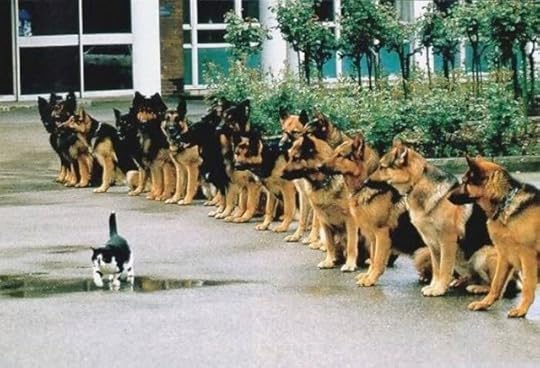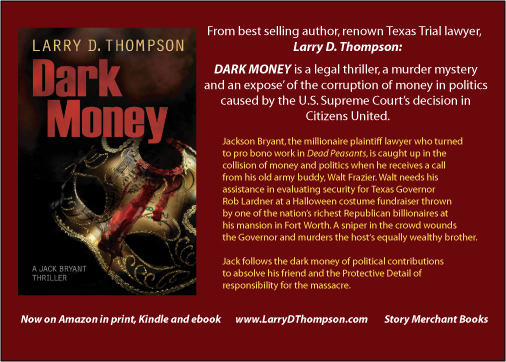Kenneth Atchity's Blog, page 161
March 2, 2016
Courage is resistance to fear, mastery of fear, not absen...
Published on March 02, 2016 00:00
March 1, 2016
The world is full of fools and faint hearts; and yet ever...
The world is full of fools and faint hearts; and yet everyone has courage enough to bear the misfortunes, and wisdom enough to manage the affairs, of his neighbor.—Benjamin Franklin
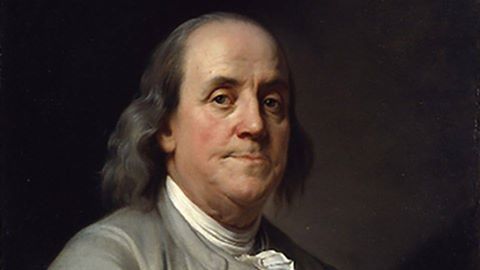



Published on March 01, 2016 15:20
February 29, 2016
We have before us an ordeal of the most grievous kind. Yo...
We have before us an ordeal of the most grievous kind. You ask, what is our policy? I can say: it is to wage war, by sea, land and air, with all our might and with all the strength that God can give us; to wage war against a monstrous tyranny never surpassed in the dark, lamentable catalog of human crime. That is our policy. You ask, what is our aim? I can answer in one word: it is victory, victory at all costs, victory in spite of all terror, victory, however long and hard the road may be.—Winston Churchill




Published on February 29, 2016 00:00
February 27, 2016
Whatever is impeding you eventually becomes irrelevant wh...
Whatever is impeding you eventually becomes irrelevant when you follow your intention, and do good work. Not sure that you know how to do good work? Do it anyway.—Pen Densham
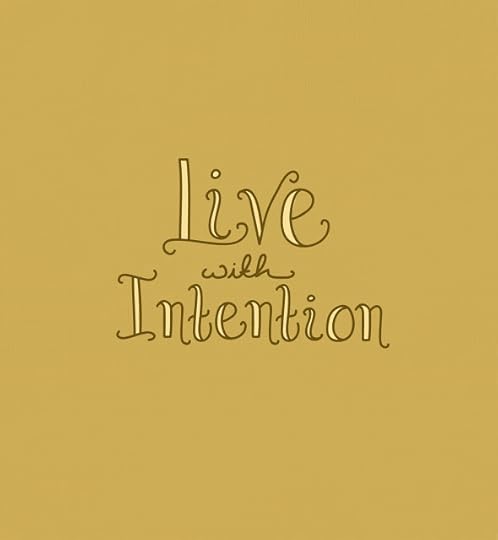



Published on February 27, 2016 19:38
February 26, 2016
AUTHOR INTERVIEW – BILL BORCHERT – HOW I BECAME MY FATHER ... A DRUNK!
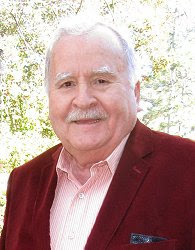 There are a few times in life when you meet someone and you just know it’s an honor. You are not sure why you deserve the honor, all you know is that it’s here, you are presented with it and now you better use it. This is how it feels to interview someone called William G Borchert. Willian – or Bill as many know him was nominated for an Emmy in 1989 for Screenwriting the commendable Warner Bros/ Hallmark hall of fame movie, My name is Bill W.
There are a few times in life when you meet someone and you just know it’s an honor. You are not sure why you deserve the honor, all you know is that it’s here, you are presented with it and now you better use it. This is how it feels to interview someone called William G Borchert. Willian – or Bill as many know him was nominated for an Emmy in 1989 for Screenwriting the commendable Warner Bros/ Hallmark hall of fame movie, My name is Bill W.
The film starred James Garner, James Wood and Jobeth Williams and was based on material gathered and personal interviews. Bill also wrote “When love is not enough,” starring Winona Ryder and Barry pepper. Over the years he has written a number of books, "The Lois Wilson Story: When Love Is Not Enough, Sought Through Prayer and Meditation, 50 Miracles That Changed Lives," and "1,000 Years of Sobriety."
Bill, thanks so much for setting out some time to share your story with our readers.
Your latest novel is a very intimate journey called, “How I Became My Father…A Drunk.” Can you tell our readers more about your journey and why you decided to share it with the world?
WB: There has been one primary goal of my journey over the last 50 years or so as a writer who has recovered from the disease of alcoholism. That goal has been to share my experience, strength, and hope with others suffering from the same malady to show them from my own personal experience that there is a pathway to recovery and a life beyond their wildest dreams.
There was a time as a young man when drinking meant fun, parties and freedom. It enabled me to do things I was too shy or too timid to do sober. I thought it made me a better dancer, a better writer, a better lover. It was my friend until it turned against me and began taking away everything that was near and dear to me in my life. Then it tried to kill me. That’s why I willingly share my story with others going through the same thing—so they can find what I have found, a new way of life.
However, my new book, “How I Became My Father…A Drunk” is one I never intended to write. I guess I didn’t want to re-live a rather painful and shameful past after years of making peace with it and with those that were involved. But when several very close and loving friends, including my wife, convinced me that my experience growing up with an alcoholic father and then becoming an alcoholic myself could help families better understand the disease and its solution, I put pen to paper.
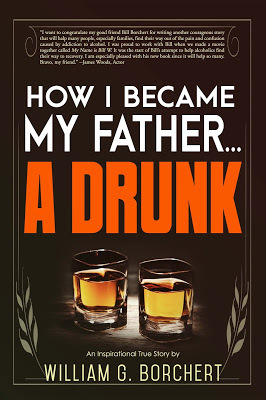 Alcoholism, like many addictions, is a disease many humans can’t comprehend. How much of what you suffered was heredity?
Alcoholism, like many addictions, is a disease many humans can’t comprehend. How much of what you suffered was heredity?
WB: From my own personal experience as well as from sharing with other recovered alcoholics over some years now, I’m convinced that alcoholism is definitely a family disease. First of all, science has discovered that it’s in the genes. They say that anyone with one parent who is alcoholic has a 40-50% chance of becoming addicted themselves. If both parents are alcoholic, there’s an 80-90% chance that one or more of the children will follow suit.
Not only is alcoholism hereditary, it is also environmental. What I mean is, the shameful and harmful behavior of every alcoholic affect, at least, seven other people in their lives—parents, spouses, children, other relatives and friends and even co-workers.
So, with more than 40 million alcoholics in the United States alone, that means more than 250 million people are impacted in some way by the disease of alcoholism and most don’t know what to do or where to go for help. That’s another reason I wrote my latest book—to show that there is a solution.
How have you dealt with the part of society that doesn’t understand what an addict goes through or how he sees the world?
WB: Despite the continued attempt by many in the recovery field to educate the world about the fact that alcoholism is a disease, there’s still a terrible stigma attached to it. Many people still consider abusive drinking a moral weakness or the lack of will power. That’s why so many addicts deny they are addicts and why this terrible denial keeps them sick, makes them sicker and sadly kills too many.
I have been through this myself more than once. Even though I have become a successful author and screenwriter, I can still see people pause and reflect when, should the occasion call for it, I tell them I am a recovered alcoholic.
So I keep on writing about recovery from addiction, hoping that someday it might help reduce the denial among alcoholics and lessen the stigma that surrounds them. The more people who come to know “the sober alcoholic,” the more the stigma will subside. At least, that is my hope.
Has this book had any effect on others who struggle with alcoholism?
WB; I am pleased to report that it has. Even though the book was only published three months ago, I am already getting emails and phone calls from people telling me how much they “identified” with my story, how much it helped them, their parents or siblings and how they are telling all their relatives and friends to get a copy.
Some admitted they had a similar problem with a drunken father, swearing never to be like him and then becoming the same or worse. Several women said it was a drunk and abusive mother that caused the problems in their homes. I really wasn’t that surprised to hear those kinds of stories since, as I said before, alcoholism is a family disease.
One lady told me very excitedly: “This book should be must reading in every home in America.” I should have been embarrassed by such a laudatory remark, but I wasn’t. Since I believe in what she said, I simply replied, “Thank you very much.”
As a world class writer, your success continued throughout your struggle, how did you manage to focus on your work while the balance of your family had to live in the wake of your own destruction?
WB: As we know today, alcoholism, like any other disease, only gets worse not better when left untreated. So as my disease progressed, my success digressed.
By the age of 22, I had become a by-line feature writer for the largest evening newspaper in the world, based in New York City. I was covering and writing some of the major stories of our time. By the age of 25, as a result of my abusive drinking and erratic behavior, I was on my way out the door. I began bouncing from one job to the next, writing for magazines, radio shows, and small public relations firms.
I tried focusing on my work. I knew I was a good writer when I was sober. I knew I was a young man who had been given tremendous opportunities to achieve significant success and financial reward in a career I loved. But I had no idea that my disease made me powerless over alcohol. I walked around with a mental obsession for booze that turned into a physical craving once I picked up the first drink. As a result, my whole life became unmanageable and my wife and children suffered the consequences.
By the age of 27, I was just about unemployable in the media world of New York City. I had developed a reputation as an unreliable drunk who turned in phony stories and cheated on his expense account. I was deeply in debt, drank up two lovely homes and was now living with my wife and four children in my mother-in-law’s basement.
Why my wife stayed with me I couldn’t understand. I would have been long gone. But she says she still loved me and prayed that the good Bill she knew was deep inside would one day come out. And I thank God every day that her mother was kind, generous and understanding enough to take care of my family when I couldn’t. I also thank God for being able to make amends to them all when I finally got sober.
If you grew up feeling the power of addiction, seeing the dark veil it had over yourself, your family—what made you fall into the same trap?
WB: That’s a question most addicts, if not all, find almost impossible to answer—at least in a way that non-addicts can understand.
You would think, for example, when an alcoholic reads in the newspaper or sees on TV that a drunk driver killed three small children as they were crossing the street that he would never again get behind the wheel when he’s drinking. But he does.
Alcoholism is a three-fold disease. It affects one physically, mentally and spiritually. It’s that mental part that triggers the kinds of decisions and actions that can lead to disaster—the kinds of decisions non-drinkers cannot understand. But neither can the addict.I promised myself I would never be like my father. But one night in a crowded saloon, surrounded by the camaraderie of other newspaper reporters, I gave in to the peer pressure and had a few drinks. Little did I know the exuberance I felt was from my alcoholic genes coming to life. Those damn genes told me I could handle few drinks now and then, particularly on special occasions. They lied to me. Soon every day was a special occasion.
Soon one drink was too many and a thousand weren’t enough.As a result, there were many things that I began doing over and over again that I never wanted to do in the first place. But I was now powerless over alcohol. My body craved it. And once I took that first drink, all bets were off.
When did you know you wanted help?
WB: As I began to feel things slipping away and couldn’t understand why I was unable to stop drinking, I tried many different ways to help myself—taking pledges, pleading with God, going to church, trying harder to focus on my job and on my family. But nothing worked. Things continued to get worse.
It wasn’t until thoughts of suicide started to invade my booze-soaked brain that I finally reached out beyond myself for help. I discuss that period of my life in some detail in my new book.
How has this mindset changed your life?
WB: Despite my thoughts of suicide, deep inside I knew I really didn’t want to die. The real problem was I didn’t know how to live. I had no goals, no direction, no guidance and no support. All I had was fear and a lack of hope.
Then I came into a Twelve Step recovery program. I was now ready to admit I was powerless and willing to do whatever it took to get sober and stay sober. At the suggestion of a sponsor, an older man who had nearly experienced his own demise from booze, I made a decision to turn my will and my life over to a God of my own understanding. Gradually a whole new pathway opened up.
Through the Twelve Steps of recovery my thinking changed, my actions changed and I was able to once again use in a positive and productive way the talents I had been given. Today I live an entirely different life, one that is truly beyond my wildest dreams.
Do you feel you have been given a final chance at life?
WB: I no longer think about fate or how much longer I might be around. Therefore I don’t see anything, be it life, work, relationships or even the lottery, as a final chance. I try to live my life one day at a time, not in the past or in the future but in the now. However, the one thing I am absolutely sure of is—to drink again is to die.
When you realized this is it, you want to live, what did you decide to do with your life?
WB: In early sobriety, my brain was very muddled. I just hung in there and tried to follow the suggestions of others who had much more sobriety such as the man I had asked to be my sponsor in recovery. One of the most important things I was told was not to make any major decision during the first year of my sobriety.
As the mist cleared, I knew I wanted to write again. I did, and after a while became rather successful as an author and screenwriter. Then one day I came to realize what a great debt I owed for this great gift of sobriety I had been so freely given. That’s when I began to dedicate myself to writing books and movies about recovery from addiction, hoping that others might find the unbelievable life I have found as a sober man. It has given me the kind of satisfaction that money can’t buy.
Has writing been a big healing point in your life?
WB: When you are able to do what you love to do in life, I believe it makes you happy, healthy and very grateful. At least that’s what has happened to me. So yes, my writing has not only been healing but it has helped expand my horizons far beyond where they were when I was nothing but a selfish, centered alcoholic pounding on the bar in a sleazy saloon for another drink.
How much does sharing your journey as a well-known artist contribute to the sales of your books?
WB: That’s a difficult question to answer. I guess when people read one of your books and enjoy it that may prompt them to buy another. I have met people who told me they have read all my books and seen my movies. I also know that many well-known major authors have large followings. So I guess the answer is yes.
Are there any events where people can reach out to you?
WB: When I am asked to speak at business, professional or social meetings or conventions or hold book signings, these events are usually posted on Facebook or on my website, williamborchert.com.
What’s next in line for Bill?
WB: There’s a major film producer already interested in making a movie based on my new book, “How I Became My Father…A Drunk.” In the meantime, I am finishing several magazine articles and meeting my commitments for a number of speaking engagements. Then I’ll take a deep breath and choose from four very interesting ideas what will be my next book.My wife, Bernadette, says I’d rather write than breathe. But we always manage to spend some fun and loving time together.
Where can readers go to buy your books?
WB: First, if readers would like to find the books and movies I have written, they can go to my website, williamborchert.com and click on “books and movies”
Should they like to purchase any of my books, they can do so directly from my website or they can find most of them in bookstores as well as on Amazon.com, Hazelden.com or Hallmark Hall of Fame.com. There is one exception however. My new book, “How I Became My Father…A Drunk” can only be purchased from Amazon.com or from my website, williamborchert.com.
Do you have any place where people could contact you or someone who may feel they need help?
Definitely. I can be reached by email at: williamgborchert@aol.com or on my cell phone: 843-855-9747. And I always answer or return messages since there was a time when I needed to reach out too.
Read more at My Addiction Books

Published on February 26, 2016 00:00
February 24, 2016
AUTHOR INTERVIEW - RAT PACK PARTY GIRL: From Prostitute to Women’s Advocate - Jane McCormick
 When Ken introduced me to Jane, I had this disheveled vision of Marilyn Monroe combined with the novel I read on Holly Madison – Down the Rabbit Hole. I’m not sure why that vision popped into my head as the story Jane relays holds such deep meaning and purpose. It carries a broad and impactful message.
When Ken introduced me to Jane, I had this disheveled vision of Marilyn Monroe combined with the novel I read on Holly Madison – Down the Rabbit Hole. I’m not sure why that vision popped into my head as the story Jane relays holds such deep meaning and purpose. It carries a broad and impactful message.Janie McCormick is an author who shares a harrowing, heart-breaking, and inspiring memoir on how she escaped a life of abuse only to fall into the dangerous and luxurious high-roller prostitution ring in Las Vegas in the 60’s. She was the Rat Pack’s (and namely Frank Sinatra’s) go-to girl for all their “fun.”
Jane, it’s a privilege to pick your brain and have you share your story. Breaking my silence; Confessions of a Rat Pack Party girl and the sex-Trade survivor was released in November 2010. How have readers received this story?
JM:My first response to how you viewed me as a mixture of Marilyn Monroe, a “worldly famous actress” and Holly Madison, a Hugh Hefner’s, go-to girl was interesting. Both beautiful well-built blonds with “Type A” personalities like myself. I, however, was the high-class call-girl entertaining many celebrities and millionaires seven days a week. I worked on my own and wasn’t in a prostitution ring!
In regards to “Breaking My Silence: Confessions of a Rat Pack Party Girl and sex-trade survivor:” JM:Patti Wicklund and I self-published “Breaking My Silence” in 2007, and sold 2000 copies. In 2010, we self-published the book with IUniverse, a print-on-demand company, because we hoped the book would reach more people.
The people loved it. Many said, “they couldn’t put it down!” Most couldn’t believe I survived that life and others were intrigued with the celebrities. But for the most part, it was an “eye-opener” about the misunderstood world of prostitution and my search for true love.
What Made you decide to sit down and put words to paper?
JM: I thought about this since I left Vegas in 1970 and I didn’t want others to get caught up in this lifestyle.
How has this book changed the lives of others in similar circumstances?
JM: I think if a victim is reading this book they’ll learn that they are not alone in this abuse. That I survived and so can they!
How has the release of this book changed your life?JM: I realize that a lot of abused women need help. In Sweden, it against the law to: “Buy or sell human beings for sex!” Sweden arrests “pimps” and “johns!” As John Choi, Ramsey County Attorney says, “Jane provides courage for other victims to seek help and properly puts into context that prostitution is not a victimless crime. Her book should inspire us all to create violence-free families and communities, where all women and children are valued and safe.”
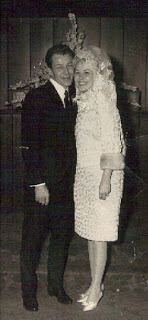 In today’s time, sex has literally become a household brand if one considers how easily accessible it is to everyone who has access to anything electronic. In your experience how has its impact escalated and influenced the world we live in today? JM: It’s the ruination of this world, to forget morals, values, and human dignity. Human Trafficking is an epidemic in the world. It’s larger than drug trafficking and it needs to stop!
In today’s time, sex has literally become a household brand if one considers how easily accessible it is to everyone who has access to anything electronic. In your experience how has its impact escalated and influenced the world we live in today? JM: It’s the ruination of this world, to forget morals, values, and human dignity. Human Trafficking is an epidemic in the world. It’s larger than drug trafficking and it needs to stop!Your book manages to give insight into the girl most women sees as prostitutes. Do you feel that the empathy it draws can be used against women you are trying to help? JM: That’s one reason why I wrote the book. By using me as an example of others, that society needs to see that prostitutes are human beings with hearts and souls like everyone else. No one was born to be a prostitute! That we are victims and survivors of abuse. That people need to remember that it could happen to them.
Life stories, in general, are always so hard to comment on. I mean if this was your life, and you shared it with the world, who am I to say; hey this is a really shitty book? Readers out there, however, have different opinions on critiquing work, how do you deal with negative comments towards your story and your life?
JM: When I stood on the stage in Reno, Nevada in 2012, at question and answer session for the play of VOICES IN THE LIFE OF PROSTITUTION IN NEVADA, By Norman Stephens, executive producer and Peabody and Emmy Award Winner, where they used me as a lead character, a man asked, “You know you liked making that money. You know that you didn’t have to do that work! You know you wanted to!” And I said to the elderly man, “How would you like it if your kids had to turn tricks to live. No woman likes to turn tricks!” Afterward, the man left the room.
As a victim, how have you managed to wake up and redirect your entire life, your mind set on something positive? JM: I woke up after Johnny, my “old man,” tried to shoot me because he didn’t want to lose his money maker! I left him for a woman who loved me for me and he’d lost control of me.
In earlier year’s women were drawn to places like Las Vegas because of the glam and the money. Today the lines have undoubtedly become a lot more blurred due to the internet and society having a broader spectrum to connect. What should women look out for in today’s time? JM: Look out for some guy that says, “It’s okay for you to go to bed with that guy for money. Because it’s only for sex and not for love. I understand all that, it’s okay with me!” If a guy says that, you know that real men do not want their women going to bed with other men and they should tell that man to get away from you and she should run for her life. He’s nothing but a glorified pimp!
How much different is it from when you were involved in these circles? JM: There were no circles for me. I strictly worked Vegas high-rollers by myself and was introduced by pit bosses and owners. I didn’t work in brothels and wasn’t moved around like other working girls who weren’t allowed on the Strip. Many of those girls stayed downtown in the 60s.
How much do novels like 50 Shades of Grey contribute towards this type of market?
JM: 50 Shades of Grey brings out the controlling self-centered sickness of men’s need for sexual control.
Does BDSM play a big role in these types of environments or is it something that has really only popped its head since the popularity of 50 Shades?
JM: BDSM – a sexual practice that stands for bondage and discipline; dominance and submission; and sadism and masochism. One, in my experience most pimps and johns want to be in control. That’s why they pay for sex. But I thought I was the one in control. The men liked a woman to be in control, giving them pleasure, entertaining their sexual fantasy. Two, without knowing my true situation at the time I was with Johnny, I tried to keep him happy by giving him all the money so he’d love me more and wouldn’t beat me up. I needed his approval and would do anything he wanted. Now I encourage other women to: “Shatter the Silence, Stop the Violence!” To speak out and get help. To change laws to help victims of abuse throughout the world.
If you start talking to someone who was about to depart on the same journey you undertook, what is the one piece of advice you would give them? JM: I tell them that I’ve been there. The high-class call girl of Vegas in the 60s who made a half-million a year. I was beaten, belittled, raped and left out in the street to die. I tell them: “Don’t do it! Run for your life!” As James Douglas Dunlap, FBI, Forensic Examiner, Cryptanalysis & Racketeering Records Units with 30 years of experience wrote: “I commend Jane and Patti for what they had to do in writing Rat Pack Party Girl and the compassion Jane has in conveying her life story to educate and inform the society. I hold Jane in the highest regard for speaking out about this horrendous problem we have in human trafficking.”
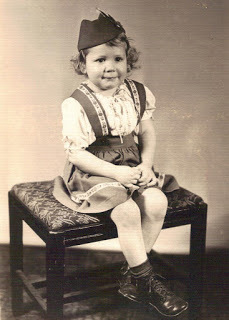
What do you want to achieve with your novel – Breaking My Silence: Confessions of a Rat Pack Party Girl and sex-trade survivor?
JM: First, I’m promoting my new book called RAT PACK PARTY GIRL: From Prostitute to Women’s Advocate, which is published with STORY MERCHANT BOOKS, President/CEO Dr. Ken Atchity along with the gracious, kind help of Norman Stephens Productions. My achievement comes from a quote by Tara Patet, Domestic Violence Prosecutor, “Jane McCormick is a true survivor and champion for all women who have endured violence and exploitation. Her journey and her willingness to share her story so that others may learn from her experience is a testament to her courage resilience and grace.”
Can you share one thing in your life that was a turning point, one opportunity you feel you should have used that would have changed your life dramatically?
JM: Meeting the love of my life, Patti Wicklund changed my whole life into unconditional love, trust and security. It was all that I ever hoped to have and something I searched for throughout my struggles in life. I’ve been with her for 22 years. We’ve written these books, and together we produced television programs based on Breaking My Silence Issues. We believed it was an opportunity to bring awareness to non-profit organizations such as, Minnesota Coalition against Sexual Assault, and law officials like, John Choi, Ramsey County Attorney, who work hard to help victims of abuse. As quoted by Andrea Paulet, Public Access Lead, wrote: “Jane McCormick and Patti Wicklund won our 2012 Community Involvement Award for their efforts to address issues that affect women in our community because Jane used her own experiences to shine a light on the risks women face.”
When you read all the memoirs from former playmates and people with similar experiences or stories, do you ever relate to their experiences?
JM: I relate more to current issues and it breaks my heart to see it happening today. Now the sexual predators are using kids and there’s no law to protect women from the age of eighteen because you’re considered to be an adult. And like many women today after being raped, they never report it because they’re afraid and don’t believe anything could be proven in law. For instance, a guy steals a dollar and goes to jail for 10 years, a guy rapes a girl and is let out on good behavior.


How and where can readers with similar reach out to you?
JM: I can be reached at ratpackpartygirl@gmail.com
Are there any events in your areas where readers can go for book signings?
JM: Books can be purchased at: Amazon; Story Merchant Books;
If you’d like an interview, please feel free to contact us at ratpackpartygirl@gmail.com
Links on Youtube:
1. Rat Pack Party Girl - Part 1; 2. Rat Pack Party Girl From Prostitute to Womens Advocate
Read more at My Addiction Books
Rreee

Published on February 24, 2016 11:50
February 23, 2016
Guest Post: Breaking News: Writing is Hard! by Dennis Palumbo
Work the problem---don't make yourself the problem.
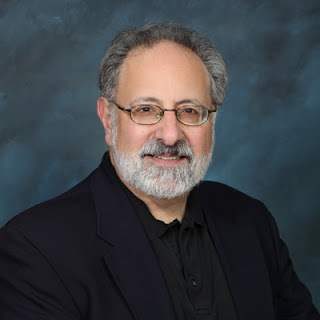 As a psychotherapist who specializes in working with creative people, I'm often asked to speak at writing conferences. At one such recent event, an audience member stood up and asked a question.
As a psychotherapist who specializes in working with creative people, I'm often asked to speak at writing conferences. At one such recent event, an audience member stood up and asked a question.
"When I write," he said, "I feel like I don't always know what I'm doing. I go over stuff, then I cross stuff out, then I try something else...I feel like I'm losing it sometimes. What does that mean?"
I shrugged. "It means you're a writer."
"But I spend a lot of time worrying, never sure whether or not the damned thing is working..."
"Sounds like writing to me."
This did not erase the perplexed look on his face.
"I don't know about that." He glanced around the crowded room. "I mean, I heard the other day on the radio that we're all crazy."
"Who's crazy?"
"Us. Writers. Artists in general. This shrink was on some talk show on NPR, and he said it's been proven that we're all bipolar."
"I'm confused. Do you mean that because you're a writer you're bipolar, or does being bipolar cause you to be a writer?"
"He said it could be one or the other, but it could be both.What do you think?"
"I think I'm gonna skip the next NPR pledge drive."
Apparently, it's in fashion again: the notion that the creative impulse, with its occasional emotional difficulties, is merely the product of a psychological disorder. It must be, the argument goes, given how much emotional turmoil, stress and disordered mood is often associated with it.
The current favorite diagnosis for artists, particularly writers, is bipolar disorder---what used to be called manic-depression.
In fact, there's a movie currently in release---based on Kay Jamison's influential book, Touched With Fire---that reinforces this very concept. But the idea that writers are of a single and highly neurotic type goes all the way back to---who else?---Freud. Later, in the 1950's, a fellow named Edmund Bergler (credited, by the way, with inventing the term "writer's block") wrote a number of books on the subject. His explanation for the reason that writers write? "Psychic masochism."
Of course, the idea that the artistic impulse is inevitably the product of a psychological condition is not new. History is filled with examples of the tormented artist stricken with melancholy, going on drunken binges, cutting off an ear, and generally behaving---as we therapists like to say---inappropriately. But to infer that some kind of "craziness" underlies creative endeavor, or, even worse, that the impulse to create is itself an indicator of some clinical condition is just plain wrong.
First, to whatever extent a therapist believes in the validity of diagnostic labels like "bipolar," one thing is clear: Labels exist for the convenience of the labeler. How helpful they are to the artistic person is debatable.
Second, claiming that the creative impulse comes from any one source---whether mania, psychosis or the moon---is both ludicrous and potentially harmful. Ludicrous because it's oversimplified and inconsistent with the lived experience of countless artists. Potentially harmful because it undervalues the mysterious, indefinable aspects of the creative act.
I'm reminded of a quote by H.L. Mencken, who said, "There is always an easy solution to every human problem---neat, plausible and wrong." The tendency to see a writer's creative struggles solely in terms of evidencing a psychological problem betrays a profound narrowness in scope, imagination, and appreciation for the hidden ways of the artistic heart.
The point is, yes, perhaps Van Gogh did suffer from symptoms that we might label bipolar. But what is also true---and certainly more important---is that he was supremely talented. Both facts can co-exist, without one necessarily causing the other.
Which brings me back to that worried audience member. Because the truth is, he's not alone in his concern about what his creative struggles mean. Many writer patients in my therapy practice wonder about the same thing, given the level of anxiety, self-doubt and fear of shameful self-exposure that accompanies the writing of most scripts, plays, essays or novels.
"If I'm plagued with anxiety," he or she says, "doesn't that say something about the quality of what I'm writing? Let's face it: if I was any good, I wouldn't be going through this agony. If this story really worked, I wouldn't be bumping up against so many technical problems, narrative glitches, inconsistencies in some of the characters. Right?"
Wrong. You're bumping up against technical problems, narrative glitches and issues with some of your characters for a very simple reason. WRITING IS HARD.
This isn't to say that writing isn't often accompanied by anxiety, manifesting in a dozen different ways, from sleepless nights to procrastination to substance abuse. And these psychological aspects ought to be addressed. But these symptoms---and the self-recriminating meanings we give them---are not the reason that writing is difficult. Because whether or not a writer suffers from these symptoms, in small measure or to a crippling extent, the reality is that telling a good story with intelligence, emotional truth and narrative complexity is hard. Really, really hard.
Let me put it another way: what I sometimes tell my writer patients, and what I'm trying to stress here, is that an artist's job is to create. When you create anything---whether a script or a novel, whether painting a landscape or writing a song---you're bound to run into problems. Problems inherent in the doing of the task. So your real, pragmatic, fundamental job is to work on these problems. Solve the difficulties. Answer the nagging questions.
In other words, I believe you should, as a creative person, work the problem, instead of making yourself the problem. You and your psychological issues aside, problems with your work are inherent in doing that work.
Case in point: one of my friends is a Buddhist monk, whose composure and equilibrium is, in my experience of him, a model of psychological well-being. He's also a poet. The last time I spoke with him, he complained about this long poem he was laboring over. "Man," he said, "writing poetry's a bitch."
Note that he didn't say anything self-recriminating about his talent, his character, his work ethic, or his puny place in the pantheon of poets. He didn't see his struggles and artistic frustration as evidence of a failure in himself. Or a reflection of his neurotic insecurity. He merely stated that writing poetry is hard.
So, once again: when you come up against some difficulty in your writing, work the problem---don't make yourself the problem. You may have issues to be addressed, but the difficulties of writing are inherent in the task, not a reflection of your failings as either a person or a writer.
Remember, writing is hard. Writing anything is hard. Especially if you're trying your best.
Which reminds me of an old Hollywood story. Years ago, back in the days of the studio system, a roomful of contract writers were going crazy trying to solve an Act Two problem in a script they were doing. After a week of teeth-gnashing and garment-rending, a new young writer was brought into the room. In a matter of minutes, he hit upon the solution. To which one of the exhausted old veterans mumbled, "Sure he solved it. He didn't know how hard it was."
Read more at Psychology Today
---------------------------------
Formerly a Hollywood screenwriter (MY FAVORITE YEAR; WELCOME BACK, KOTTER, etc.), Dennis Palumbo is now a licensed psychotherapist and author of the Daniel Rinaldi mystery series. More info at www.dennispalumbo.com (link is external)
 As a psychotherapist who specializes in working with creative people, I'm often asked to speak at writing conferences. At one such recent event, an audience member stood up and asked a question.
As a psychotherapist who specializes in working with creative people, I'm often asked to speak at writing conferences. At one such recent event, an audience member stood up and asked a question."When I write," he said, "I feel like I don't always know what I'm doing. I go over stuff, then I cross stuff out, then I try something else...I feel like I'm losing it sometimes. What does that mean?"
I shrugged. "It means you're a writer."
"But I spend a lot of time worrying, never sure whether or not the damned thing is working..."
"Sounds like writing to me."
This did not erase the perplexed look on his face.
"I don't know about that." He glanced around the crowded room. "I mean, I heard the other day on the radio that we're all crazy."
"Who's crazy?"
"Us. Writers. Artists in general. This shrink was on some talk show on NPR, and he said it's been proven that we're all bipolar."
"I'm confused. Do you mean that because you're a writer you're bipolar, or does being bipolar cause you to be a writer?"
"He said it could be one or the other, but it could be both.What do you think?"
"I think I'm gonna skip the next NPR pledge drive."
Apparently, it's in fashion again: the notion that the creative impulse, with its occasional emotional difficulties, is merely the product of a psychological disorder. It must be, the argument goes, given how much emotional turmoil, stress and disordered mood is often associated with it.
The current favorite diagnosis for artists, particularly writers, is bipolar disorder---what used to be called manic-depression.
In fact, there's a movie currently in release---based on Kay Jamison's influential book, Touched With Fire---that reinforces this very concept. But the idea that writers are of a single and highly neurotic type goes all the way back to---who else?---Freud. Later, in the 1950's, a fellow named Edmund Bergler (credited, by the way, with inventing the term "writer's block") wrote a number of books on the subject. His explanation for the reason that writers write? "Psychic masochism."
Of course, the idea that the artistic impulse is inevitably the product of a psychological condition is not new. History is filled with examples of the tormented artist stricken with melancholy, going on drunken binges, cutting off an ear, and generally behaving---as we therapists like to say---inappropriately. But to infer that some kind of "craziness" underlies creative endeavor, or, even worse, that the impulse to create is itself an indicator of some clinical condition is just plain wrong.
First, to whatever extent a therapist believes in the validity of diagnostic labels like "bipolar," one thing is clear: Labels exist for the convenience of the labeler. How helpful they are to the artistic person is debatable.
Second, claiming that the creative impulse comes from any one source---whether mania, psychosis or the moon---is both ludicrous and potentially harmful. Ludicrous because it's oversimplified and inconsistent with the lived experience of countless artists. Potentially harmful because it undervalues the mysterious, indefinable aspects of the creative act.
I'm reminded of a quote by H.L. Mencken, who said, "There is always an easy solution to every human problem---neat, plausible and wrong." The tendency to see a writer's creative struggles solely in terms of evidencing a psychological problem betrays a profound narrowness in scope, imagination, and appreciation for the hidden ways of the artistic heart.
The point is, yes, perhaps Van Gogh did suffer from symptoms that we might label bipolar. But what is also true---and certainly more important---is that he was supremely talented. Both facts can co-exist, without one necessarily causing the other.
Which brings me back to that worried audience member. Because the truth is, he's not alone in his concern about what his creative struggles mean. Many writer patients in my therapy practice wonder about the same thing, given the level of anxiety, self-doubt and fear of shameful self-exposure that accompanies the writing of most scripts, plays, essays or novels.
"If I'm plagued with anxiety," he or she says, "doesn't that say something about the quality of what I'm writing? Let's face it: if I was any good, I wouldn't be going through this agony. If this story really worked, I wouldn't be bumping up against so many technical problems, narrative glitches, inconsistencies in some of the characters. Right?"
Wrong. You're bumping up against technical problems, narrative glitches and issues with some of your characters for a very simple reason. WRITING IS HARD.
This isn't to say that writing isn't often accompanied by anxiety, manifesting in a dozen different ways, from sleepless nights to procrastination to substance abuse. And these psychological aspects ought to be addressed. But these symptoms---and the self-recriminating meanings we give them---are not the reason that writing is difficult. Because whether or not a writer suffers from these symptoms, in small measure or to a crippling extent, the reality is that telling a good story with intelligence, emotional truth and narrative complexity is hard. Really, really hard.
Let me put it another way: what I sometimes tell my writer patients, and what I'm trying to stress here, is that an artist's job is to create. When you create anything---whether a script or a novel, whether painting a landscape or writing a song---you're bound to run into problems. Problems inherent in the doing of the task. So your real, pragmatic, fundamental job is to work on these problems. Solve the difficulties. Answer the nagging questions.
In other words, I believe you should, as a creative person, work the problem, instead of making yourself the problem. You and your psychological issues aside, problems with your work are inherent in doing that work.
Case in point: one of my friends is a Buddhist monk, whose composure and equilibrium is, in my experience of him, a model of psychological well-being. He's also a poet. The last time I spoke with him, he complained about this long poem he was laboring over. "Man," he said, "writing poetry's a bitch."
Note that he didn't say anything self-recriminating about his talent, his character, his work ethic, or his puny place in the pantheon of poets. He didn't see his struggles and artistic frustration as evidence of a failure in himself. Or a reflection of his neurotic insecurity. He merely stated that writing poetry is hard.
So, once again: when you come up against some difficulty in your writing, work the problem---don't make yourself the problem. You may have issues to be addressed, but the difficulties of writing are inherent in the task, not a reflection of your failings as either a person or a writer.
Remember, writing is hard. Writing anything is hard. Especially if you're trying your best.
Which reminds me of an old Hollywood story. Years ago, back in the days of the studio system, a roomful of contract writers were going crazy trying to solve an Act Two problem in a script they were doing. After a week of teeth-gnashing and garment-rending, a new young writer was brought into the room. In a matter of minutes, he hit upon the solution. To which one of the exhausted old veterans mumbled, "Sure he solved it. He didn't know how hard it was."
Read more at Psychology Today
---------------------------------
Formerly a Hollywood screenwriter (MY FAVORITE YEAR; WELCOME BACK, KOTTER, etc.), Dennis Palumbo is now a licensed psychotherapist and author of the Daniel Rinaldi mystery series. More info at www.dennispalumbo.com (link is external)

Published on February 23, 2016 11:44
February 20, 2016
Larry D. Thompson's Dark Money
Published on February 20, 2016 11:39
February 11, 2016
Love Romance? Watch The Lost Valentine ... streaming on Feeln.
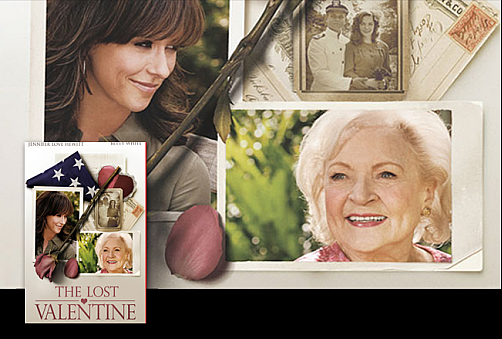
During World War II, Navy Lt. Neil Thomas bids Caroline, his pregnant young wife, farewell at Union Station. Unfortunately, Neil's plane goes down in the Pacific and he is declared missing in action. Caroline is devastated. But love never dies, and for the next 65 years Caroline returns to Union Station on the anniversary of her loss, to salute the memory of her handsome and brave husband. Eventually, a TV journalist learns of the touching story and sets out to investigate just what happened to Neil 65 years earlier. As she finds out more about Caroline and her family, she resolves issues in her own life that have kept her from finding love herself. Watch it now!

Published on February 11, 2016 18:50
February 4, 2016
Archaeolibrarian Reviews Thomas Jay Berger's Dueling in Death's Backyard!
REVIEW BY ANGI - Dueling in Death's Backyard by Thomas Jay Berger
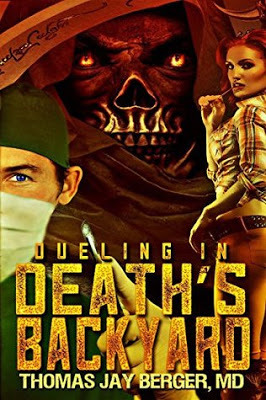 Add to Goodreads
Add to Goodreads
Genre:Medical, Thriller
Synopsis:What is it like to stop a heart and duel with death in his own backyard with a human life at stake? Until now, only a cardiac surgeon could know.
And only a cardiac surgeon with the skills of a Faulkner award winning writer could bring readers not just into the O.R. but into the heart itself to share that cosmic experience. In Dueling in Death’s Backyard, Thomas J Berger, MD – trained by Dr. John Kirklin, the true Father of Cardiac Surgery -- does exactly that and does it in the context of a medical murder mystery exposing a VA hospital scandal from decades before they became front page news.
After 13 hours and 30 units of blood, Cooper Logan and his mentor, Holt McDuff had nearly succeeded in replacing the old farmer’s entire dissected aorta. When the final suture line exploded, they were soaked in sticky scarlet blood in seconds and what had been a human being became a pile of organic junk. If the difference was a soul, it had slipped unseen through their fingers. Although he hadn’t slept in days, Cooper insisted on closing and breaking the news to the family. At least he could spare Holt those depressing final chores.
A wrestling scholarship had taken Cooper from a troubled youth in Boston to a surgical residency in Birmingham, Alabama, where he fit in like a Hell’s Angel at a British High Tea. He was more Clint Eastwood as Rowdy Yates than Richard Chamberlain as Dr. Kildare, and everyone kept telling him he didn’t look like a doctor.
Cooper was obsessed with becoming a cardiac surgeon -- stopping hearts and pitting his scalpel against Old Grim’s scythe right there in Death’s backyard. Most doctors spend their lives avoiding such situations. Only Cooper, and other cardiac surgeons, live to fight on that mystic battlefield for the life of every patient.
Culture shock and hospital politics threaten Cooper’s chances for success, but with Holt’s help he is on track to complete his residency. Then, conflict with a drug addicted nurse and her powerful protector get Cooper fired. His lover dumps him and it seems that things couldn’t get much worse. Then they do. The druggy nurse is murdered and Cooper is framed for the crime. Dr. McDuff seems to want to help but has his own secret agenda. To save his dream and his life, Cooper must unravel a mystery decades older than he is, and solve a murder in the process.
“Gently Cooper...caress her. The coronary is a women...caress her with the scalpel and she will open herself for you.”
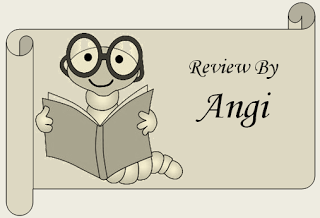 4 out of 5 (very good)
4 out of 5 (very good)
Independent Reviewer for Archaeolibrarian - I Dig Good Books!
I have to say this was different from my usual. In a good way! The dramatic opening page where you've a man bleeding out, told in a very graphic way. With the twist of being told as a doctors memoir. I really enjoyed it, and was a bit concerned this opener couldn't be topped. That was my mistake, entirely. It could, it did!
I liked the character of Tiny the best. As much as I liked the character of the trainee doctor, Tiny just had so many facets. He wasn't just the stereotypical dumb criminal, you actually liked him, despite knowing he was a character who'd take you out without a thought, and I don't mean for dinner!!
The book twisted and turned and everyone had a dark secret, or something they would rather you didn't know.
If you don't like details about medical procedures, and how heart operations work, I'd say steer clear, but if you like knowing from a real doctor, the story itself is fiction ,but you can sense some of the thoughts and feelings are true.
Give this book a go, if it wouldn't normally be on your genre of choice. So glad I did!!
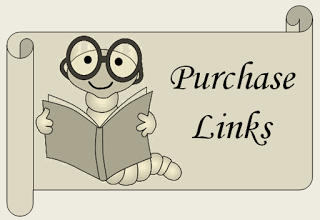 Amazon UK | Amazon USKindle Unlimited
Amazon UK | Amazon USKindle Unlimited
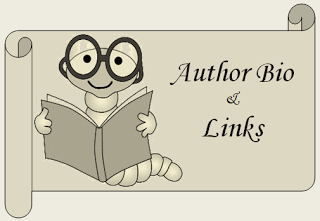
Tom Berger is a Faulkner Award winning author, distinguished cardiac surgeon, adventurer, and lifetime martial artist. After training with his mentor, Dr. John Kirklin, the true Father of Cardiac Surgery, Dr. Berger went on to start his own cardiac surgery program in a small town in Montana. His program was recognized by the Wall Street Journal as being tied for the lowest mortality in the nation for Medicare coronary artery bypass procedures. Settled now in Miami, Dr. Berger continues to train in the martial arts, writes, and consults as an expert in medical malpractice cases.
Reposted from Archaeolibrarian

 Add to Goodreads
Add to GoodreadsGenre:Medical, Thriller
Synopsis:What is it like to stop a heart and duel with death in his own backyard with a human life at stake? Until now, only a cardiac surgeon could know.
And only a cardiac surgeon with the skills of a Faulkner award winning writer could bring readers not just into the O.R. but into the heart itself to share that cosmic experience. In Dueling in Death’s Backyard, Thomas J Berger, MD – trained by Dr. John Kirklin, the true Father of Cardiac Surgery -- does exactly that and does it in the context of a medical murder mystery exposing a VA hospital scandal from decades before they became front page news.
After 13 hours and 30 units of blood, Cooper Logan and his mentor, Holt McDuff had nearly succeeded in replacing the old farmer’s entire dissected aorta. When the final suture line exploded, they were soaked in sticky scarlet blood in seconds and what had been a human being became a pile of organic junk. If the difference was a soul, it had slipped unseen through their fingers. Although he hadn’t slept in days, Cooper insisted on closing and breaking the news to the family. At least he could spare Holt those depressing final chores.
A wrestling scholarship had taken Cooper from a troubled youth in Boston to a surgical residency in Birmingham, Alabama, where he fit in like a Hell’s Angel at a British High Tea. He was more Clint Eastwood as Rowdy Yates than Richard Chamberlain as Dr. Kildare, and everyone kept telling him he didn’t look like a doctor.
Cooper was obsessed with becoming a cardiac surgeon -- stopping hearts and pitting his scalpel against Old Grim’s scythe right there in Death’s backyard. Most doctors spend their lives avoiding such situations. Only Cooper, and other cardiac surgeons, live to fight on that mystic battlefield for the life of every patient.
Culture shock and hospital politics threaten Cooper’s chances for success, but with Holt’s help he is on track to complete his residency. Then, conflict with a drug addicted nurse and her powerful protector get Cooper fired. His lover dumps him and it seems that things couldn’t get much worse. Then they do. The druggy nurse is murdered and Cooper is framed for the crime. Dr. McDuff seems to want to help but has his own secret agenda. To save his dream and his life, Cooper must unravel a mystery decades older than he is, and solve a murder in the process.
“Gently Cooper...caress her. The coronary is a women...caress her with the scalpel and she will open herself for you.”
 4 out of 5 (very good)
4 out of 5 (very good)Independent Reviewer for Archaeolibrarian - I Dig Good Books!
I have to say this was different from my usual. In a good way! The dramatic opening page where you've a man bleeding out, told in a very graphic way. With the twist of being told as a doctors memoir. I really enjoyed it, and was a bit concerned this opener couldn't be topped. That was my mistake, entirely. It could, it did!
I liked the character of Tiny the best. As much as I liked the character of the trainee doctor, Tiny just had so many facets. He wasn't just the stereotypical dumb criminal, you actually liked him, despite knowing he was a character who'd take you out without a thought, and I don't mean for dinner!!
The book twisted and turned and everyone had a dark secret, or something they would rather you didn't know.
If you don't like details about medical procedures, and how heart operations work, I'd say steer clear, but if you like knowing from a real doctor, the story itself is fiction ,but you can sense some of the thoughts and feelings are true.
Give this book a go, if it wouldn't normally be on your genre of choice. So glad I did!!
 Amazon UK | Amazon USKindle Unlimited
Amazon UK | Amazon USKindle Unlimited
Tom Berger is a Faulkner Award winning author, distinguished cardiac surgeon, adventurer, and lifetime martial artist. After training with his mentor, Dr. John Kirklin, the true Father of Cardiac Surgery, Dr. Berger went on to start his own cardiac surgery program in a small town in Montana. His program was recognized by the Wall Street Journal as being tied for the lowest mortality in the nation for Medicare coronary artery bypass procedures. Settled now in Miami, Dr. Berger continues to train in the martial arts, writes, and consults as an expert in medical malpractice cases.
Reposted from Archaeolibrarian

Published on February 04, 2016 00:00

